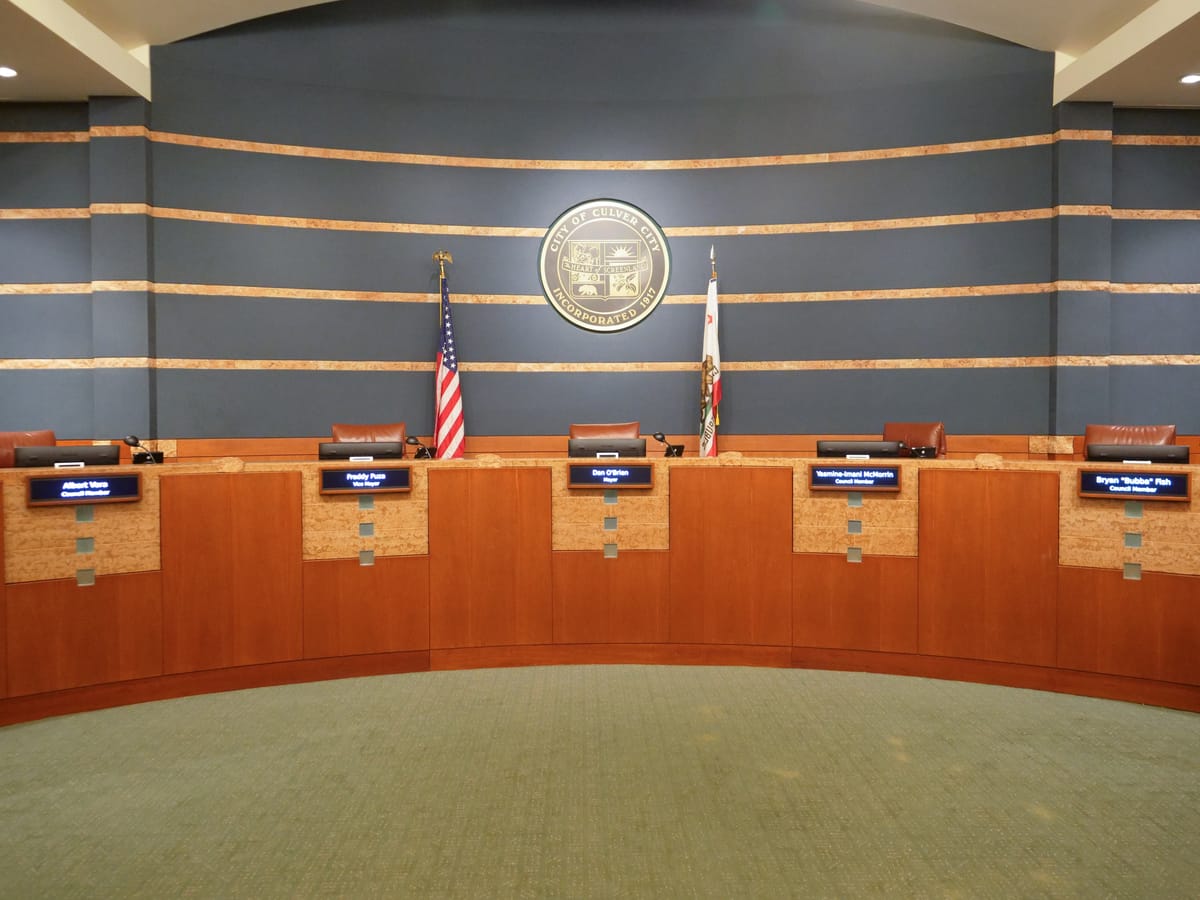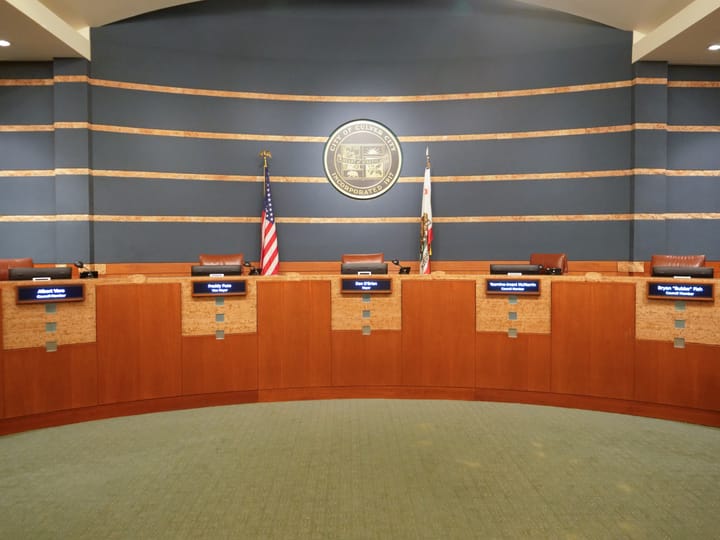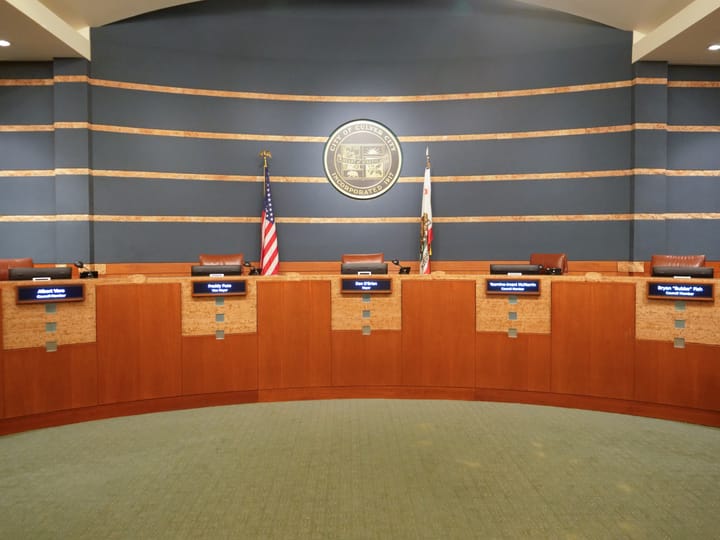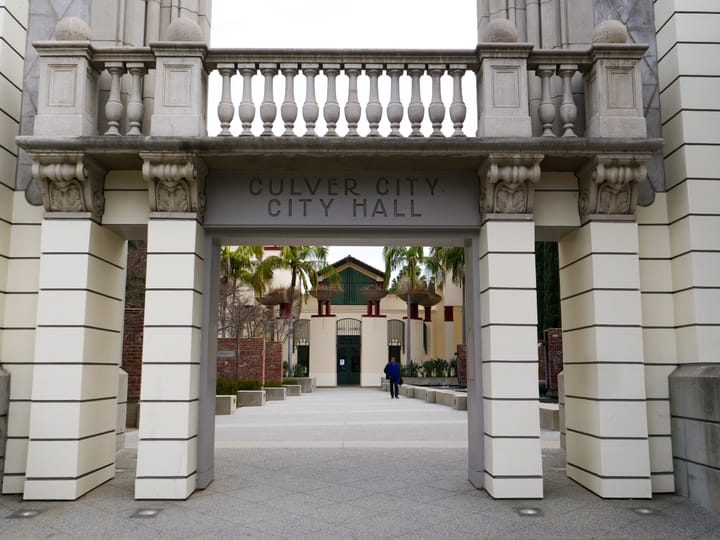Culver City to provide assistance to ICE-impacted families
L.A. County is also working to implement measures to assist families impacted by immigration enforcement, including a Declaration of Local Emergency to be considered next week

Culver City looks to support its undocumented residents by moving to establish a Rental Assistance Program over a six-month period for those impacted by federal immigration activity in Culver City. As currently proposed, the program would provide a maximum of $1,000 per adult per month for six months from an initial pool of $50,000.
Residency in Culver City is required to qualify for the program, which will be reserved for individuals making 80% or less of the Area Median Income (AMI). To protect the identities of potential applicants, the city will work with a third-party to verify their eligibility.
The decision was made as Los Angeles County considers the logistics of establishing its own Rental Assistance plan for both unincorporated and incorporated cities, including Culver City. After discussion around a potential Eviction Moratorium at its meeting today, Los Angeles County legal counsel was tasked with returning a draft of a Local Emergency Declaration related to Federal Immigration Enforcement to be considered at their October 14 meeting.
Uncertainty surrounding the County program and local finances led to a more conservative approach by the Culver City City Council at its September 29 meeting. With concerns over the General Fund budget, the city hopes to tap into sources such as funding from L.A. County's Measure A, which is intended to address housing-related issues.
However, there are still questions about exactly how much of that funding could be used for this program.
At its September 26 meeting, the Los Angeles County Board of Supervisors approved approximately $30 million in funding for an Emergency Rent Relief Program for those impacted by wildfires and federal immigration enforcement, extending financial efforts to help victims after distributing more than $30 million for wildfire victims through the L.A. County Household Relief Grant (HRG).
Since the COVID-19 pandemic, residents have been required to apply for rental assistance from other sources in addition to seeking financial help from Los Angeles County. The potential conflict arising from the County program and questions surrounding its funding led to a conservative approach, with a cap of $50,000 for the launch of the Rental Assistance Program.
Councilmember Bubba Fish hoped that the program could serve as a supplement to the county's. He pointed out that the median rent in Culver City is higher than in Los Angeles County, so their support may not be sufficient for those paying rent in Culver City.
"It's a little tough without knowing what resources from Measure A we have available," Fish said, "but I think we should commit to something tonight."
Ensuring that the people who need the program were a key point for councilmember Yasmine-Imani McMorrin. McMorrin was concerned that documents used to verify eligibility could be subpoenaed by Federal Agencies, whic would create enough fear to keep people from identifying themselves for these programs.
Department of Housing and Human Services Director Tevis Barnes explained that the department has reached out to partner agencies like Upward Bound House, Saint Joseph's Center, and the Culver City Unified School District, and they do not have concrete data on the tangible impact on undocumented immigrants due to the population responding to recent activities by "going underground."
"We have seen none, but we know the reality of that population," Barnes said of those impacted by immigration enforcement. "They are not likely to seek us out right now because we are a governmental agency with a big seal, and that is terrifying to some folks."
Protecting the information of applicants was another concern for McMorrin, who worried that the program's data requirements could create a fear of exposure to immigration probes. This concern was also present at the County level, with Third District Supervisor Lindsay Horvath expressing concerns over the reporting requirements for a potential Eviction Moratorium at today's Board of Supervisors meeting.
County legal counsel noted at today's meeting that California Civil Code Section 1940.3B is among the protections currently in place related to immigration status. It prohibits landlords from requiring disclosure of an applicant's immigration or citizenship status for the purpose of applying to residential properties.
One proposal made by Culver City Vice Mayor Freddy Puza to alleviate data concerns was to loosen the restrictions on the program overall. Puza suggested that, while the program is intended to assist families impacted by federal activities, the immigration impact restriction could be removed to protect those who fear that seeking help from a government agency could lead to attention from federal agents.
"You don't have to come forward and say 'I need this because I can't go to work,' you [can just say] 'I need assistance," Puza proposed.
Instead of maintaining a physical record, which outside parties could access through legal means, staff suggested a plan to work with a nonprofit organization to assist in evaluating eligibility on behalf of applicants, similar to how the Housing and Human Services Department works with its unhoused population.
"I think we could still do it without exposing someone's identity by working through a nonprofit," Barnes said.
To fund this program, Mayor Dan O'Brien hoped the city could look to sources outside the city's General Fund, suggesting that tax money distributed through Measure A — the countywide 0.5% sales tax measure passed in 2024 — could serve as a primary funding source for this project. O'Brien also supported a financial suggestion by McMorrin — that language be included to reallocate this program's funding for other uses should it remain unused for rental assistance.
For the launch of their program, L.A. is utilizing a combination of $1.2 million from the American Rescue Plan Act, $8.8 million from the County's Care First Community Investment, and $19.8 million from the Affordable Housing Trust Fund.
The Standing Subcommittee on Housing and Homelessness — currently comprised of Fish and McMorrin — will hear an update on a potential source at today's meeting, held at 4 p.m. at the Patio Room on the 3rd Floor of Culver City's City Hall.
In addition to serving as the fiscal agent for Measure A funds, the Westside Cities Council of Governments (COG) is also responsible for distributing funds from the Los Angeles County Affordable Housing Solutions Agency (LACHSA) Renter Protection and Homelessness Prevention Program. Staff will present an item at today's Subcommittee meeting regarding a potential grant funding award of $257,108 that the city could receive from the program.
A budget amendment will be required to fund the program, so the item will return for final consideration at the October 13 meeting, accompanied by additional information from staff regarding the availability of Measure A funding for Rental Assistance.




Comments ()